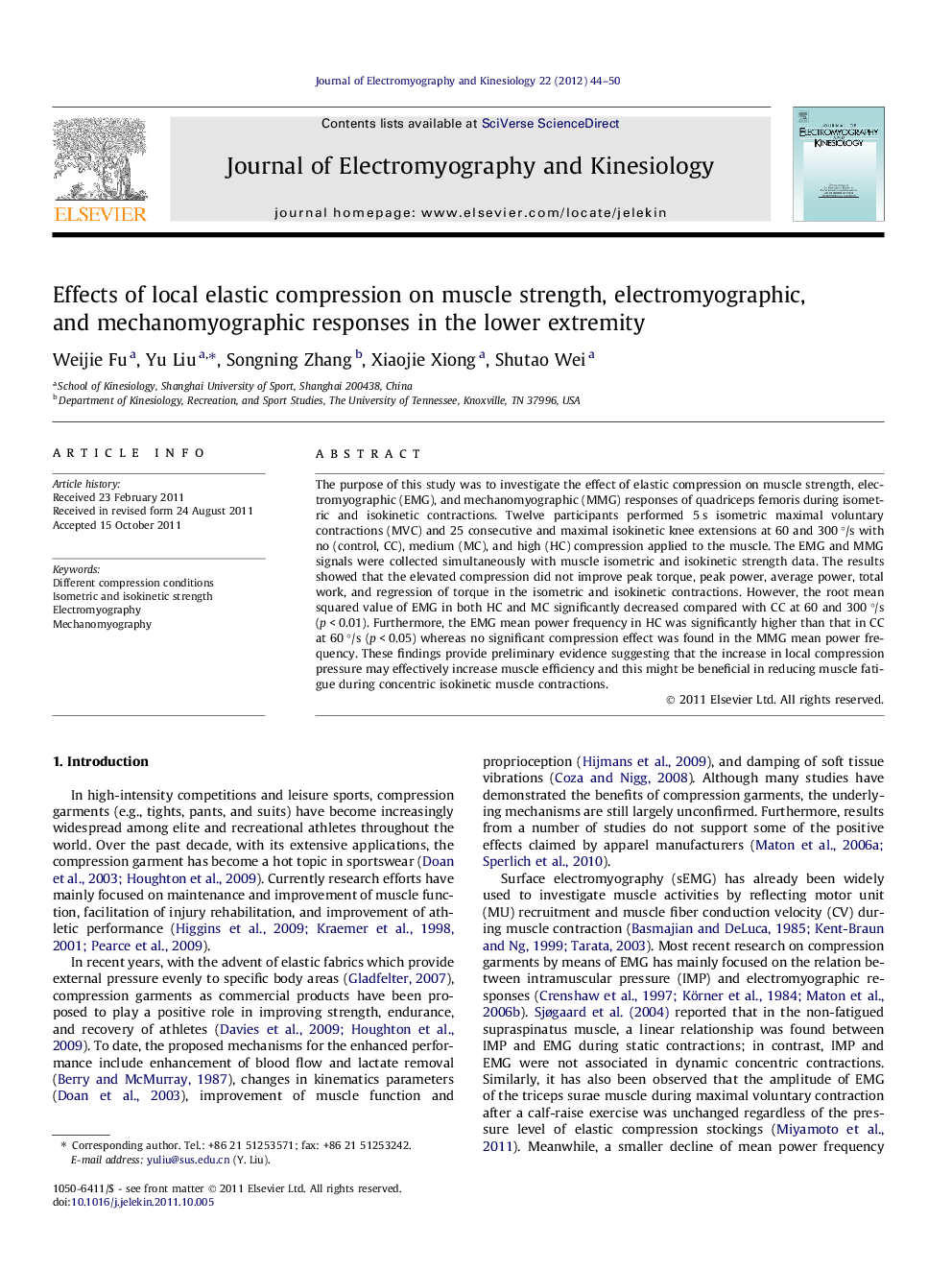| Article ID | Journal | Published Year | Pages | File Type |
|---|---|---|---|---|
| 4065042 | Journal of Electromyography and Kinesiology | 2012 | 7 Pages |
The purpose of this study was to investigate the effect of elastic compression on muscle strength, electromyographic (EMG), and mechanomyographic (MMG) responses of quadriceps femoris during isometric and isokinetic contractions. Twelve participants performed 5 s isometric maximal voluntary contractions (MVC) and 25 consecutive and maximal isokinetic knee extensions at 60 and 300 °/s with no (control, CC), medium (MC), and high (HC) compression applied to the muscle. The EMG and MMG signals were collected simultaneously with muscle isometric and isokinetic strength data. The results showed that the elevated compression did not improve peak torque, peak power, average power, total work, and regression of torque in the isometric and isokinetic contractions. However, the root mean squared value of EMG in both HC and MC significantly decreased compared with CC at 60 and 300 °/s (p < 0.01). Furthermore, the EMG mean power frequency in HC was significantly higher than that in CC at 60 °/s (p < 0.05) whereas no significant compression effect was found in the MMG mean power frequency. These findings provide preliminary evidence suggesting that the increase in local compression pressure may effectively increase muscle efficiency and this might be beneficial in reducing muscle fatigue during concentric isokinetic muscle contractions.
